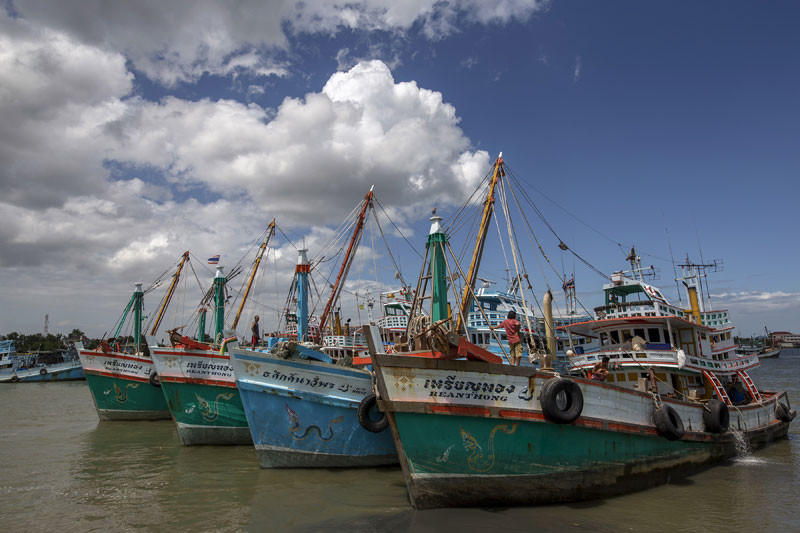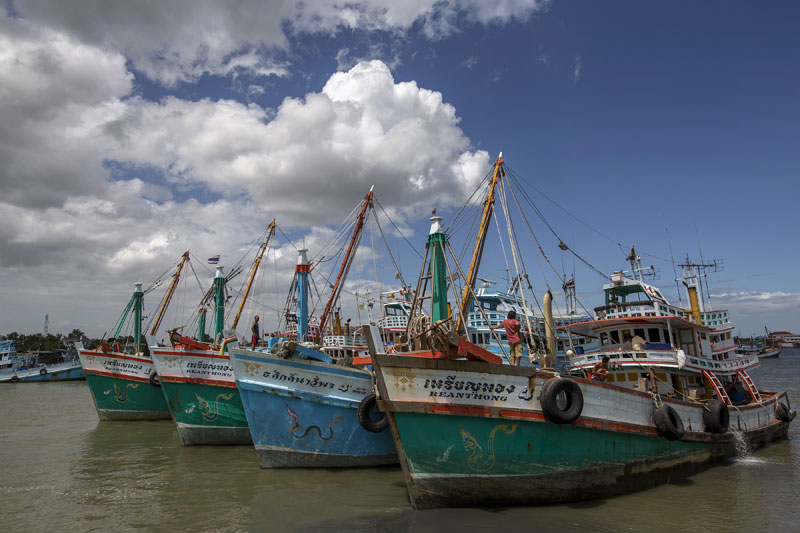Cambodian fishermen trafficked into Thailand are working as virtual slaves, isolated from the outside world on boats and in fish processing centers that supply Nestlé, according to a new report commissioned by the global food giant.
Following the exposure over the past two years of Thailand’s seafood industry as a key driver of human trafficking and forced labor, Nestlé commissioned the report from Verite, a nonprofit that works on labor issues, to establish the extent of abuses at three shrimp farms, two ports and on a docked boat.

The report, based on three months of research, found that poor migrants, mostly from Burma and Cambodia, had been tricked into debt bondage, were forced to work inhumane hours, deprived of wages, poorly fed, and then beaten when they could not perform tasks.
Some migrants reported being “sold” to captains who passed them to other boats as if they were private property. Dead bodies were thrown overboard to, in the words of one boat captain, “avoid contamination.” And once on the boats, the laborers had little option but to continue.
“Grievance mechanisms for sea-based workers and most land-based workers were largely absent, with little to no communication available to fishers while at sea,” the report says. “Compounding these issues, workers often lacked appropriate documentation, which would have lent them some level of protection against threats of detention, deportation, and denunciation to the authorities.”
More than 300 Cambodians were repatriated in June and July following an Associated Press investigation that found thousands of migrant workers stranded on Indonesian islands after being trafficked onto mostly Thai-owned fishing boats.
In 2014, six Taiwanese nationals were sentenced to 10 years in prison—five of them in absentia—after 180 Cambodians returned from having been forced into debt bondage on fishing boats via the Cambodian-registered Giant Ocean recruitment agency. NGOs working closely on the Giant Ocean case believe that upward of 1,000 Cambodians may have been sent abroad before the firm was shut down.
It is unclear if any of those recruited by Giant Ocean are now working in Thailand’s fishing industry, but testimonials from those who have returned suggest that they are all working in similarly oppressive and dangerous conditions, which were again exposed by the Nestlé report.
Workers told researchers that they were usually at sea for 30 days at a time, working “harder than a machine” for an average of 16 hours per day. The report found “the use of an illegal substance among workers on fishing boats to be rampant; supervisors/crew leaders were fully aware but did not restrict use, as the substance kept workers awake.”
And deaths were not uncommon, according to those interviewed.
“Sometimes, the net gets too heavy and workers get pulled into the water and just disappear,” one fisherman said.
Isolated from the outside world and often deprived of bare necessities such as drinking water, rest and sleep, the workers—usually about 15 of them on a boat—would often turn on each other.
“There was a lot of fighting,” said one man. “People are tired, and easily get angry. They would kill each other. When someone dies, he gets thrown into the water.”




